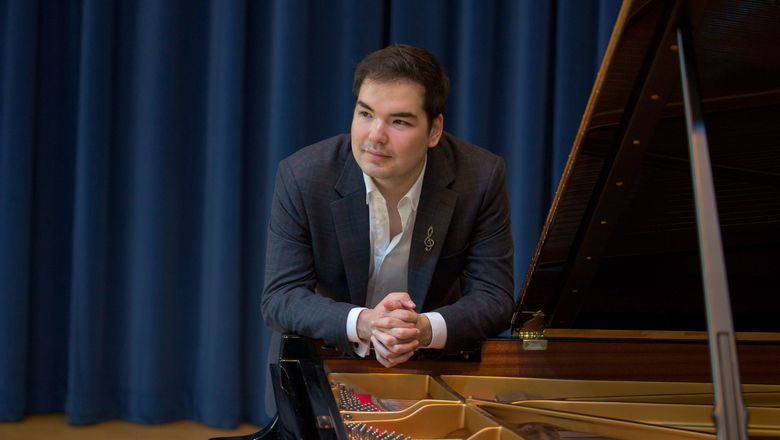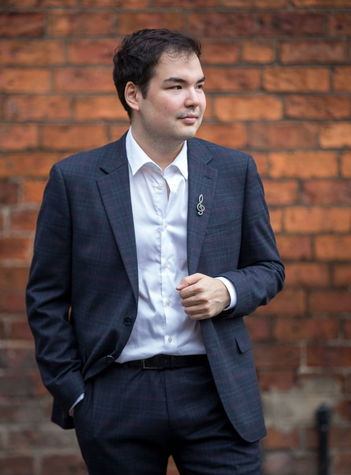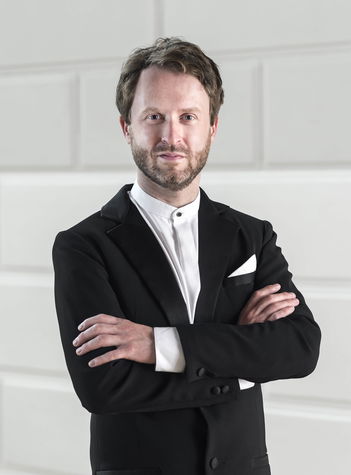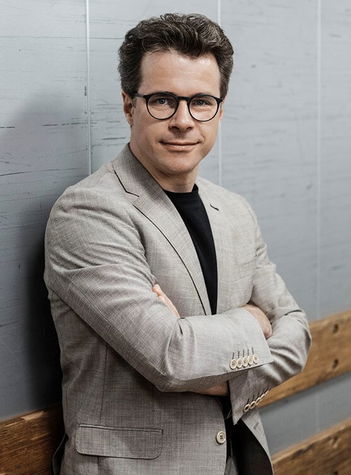In the modern history of the Czech Philharmonic, when the first steps were being taken towards an educational programme, the idea arose in 2006 – while Václav Riedlbauch was still the executive director – of giving symphonic concerts for student audiences, i.e. for a new generation of listeners. The choice fell to the former Prague (later Czech) Youth Orchestra, an ensemble with many years of tradition of a youthful, enthusiastic approach to music. This worked wonderfully because the students in the audience saw their peers on stage. Bound by their love of music, these musicians gave performances from 2006 to 2010 under the leadership of the conductor Marko Ivanović, playing such works as Janáček’s Sinfonietta, Dvořák’s New World Symphony, Cello Concerto, and Te Deum, Mussorgsky’s Pictures at an Exhibition, and Prokofiev’s Romeo and Juliet ballet suite.
When new management took over in 2011, the Czech Philharmonic greatly expanded its educational activities, and that was an opportunity for renewal of the student orchestra’s activities, renamed as the Czech Youth Philharmonic. The idea is to give the rising generation of musicians – mostly students at music schools, whether grammar schools with a music emphasis, conservatoires, or academies of music – the regular opportunity of rehearsing and performing great symphonic, concertante, and choral works. Over time, the efforts turned towards creating a permanent orchestra that would support its members in the perfecting of their ensemble playing and in the creation of long-term relationships and mutual understanding. The Czech Youth Philharmonic musicians also serve as “bearers of light” in relation to their peers by showing them that young people can love classical music and can present it enthusiastically to others.
Since the 2013/2014 season, the orchestra has been performing regularly at concerts of the Czech Philharmonic’s educational series Four Steps to the New World (under the baton of Marko Ivanović), and at the series Penguins at the Rudolfinum (with Vojtěch Jouza) and Who’s Afraid of the Philharmonic? (with Ondřej Vrabec). In April 2019, the Czech Youth Philharmonic appeared with Ida Kelarová and the Čhavorenge children’s choir at Šun Devloro concerts – musical celebrations of International Romani Day. In November 2019, the orchestra played under the baton of Robert Kružík at the Students’ Day Concert with the participation of Joachim Gauck and Petr Pithart.
In June 2020, the conductor Simon Rattle came to Prague insisting that he did not want to conduct just the Czech Philharmonic, but also “some orchestra with young people.” When the choice fell to the Czech Youth Philharmonic, that was an enormous challenge for its members. Sir Simon enjoyed working with the young musicians, and he was unsparing in his praise: “The Czech Youth Philharmonic reminds me of the orchestra of the Verbier Festival, which is made up of the best music students from all around the world, led by players from the Metropolitan Opera. That’s the level they are on.” In February 2021, the Czech Youth Philharmonic first appeared under the baton of chief conductor Semyon Bychkov in the televised concert “A přece se učí” (“But Learning Continues”).
In the 2022/2023 and 2023/2024 seasons, the Czech Youth Philharmonic debuted as part of the Czech Philharmonicʼs subscription concerts with conductors Semyon Bychkov, Giovanni Antonini, and Jakub Hrůša. In the “Steps into the New World” series, young musicians, under the baton of Marko Ivanović, performed works by Bizet, Grieg, Smetana, Vivaldi, Piazzolla, Mussorgsky, and others.





